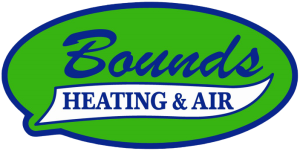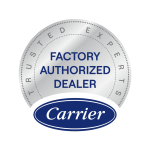7 Common HVAC Terms That Every Homeowner Should Know
Ready to learn how to speak “HVAC?” Let’s get started.
1. HVAC
Let’s start with the term HVAC. HVAC is an acronym for Heating, Ventilation, and Air Conditioning. People often will refer to an entire heating and cooling system (the heater, air conditioner, and ductwork) as an HVAC system for short.
2. AFUE
AFUE (Average Fuel Utilization Efficiency) is a term for the measurement of a gas or oil furnace’s efficiency. AFUE is a number. That number is the percentage of the amount of fuel energy used to heat your home.
For instance, if a furnace’s AFUE is 80, then 80% of the fuel it uses will be used for heating your home, while 20% of the fuel will go to waste (80% + 20% = 100%). An energy-efficient furnace will have a really high AFUE, meaning that almost 100% of the fuel it uses will be used to heat your home, and only a small percentage of the fuel will go to waste.
3. SEER
SEER (Seasonal Energy Efficiency Ratio) is the rating that describes how efficient an air conditioner or heat pump is. The SEER is calculated by dividing the unit’s total cooling power by the total energy used to power it over one year. This equation takes into account temperature differences throughout the year. Taking those differences into account is important because your AC works much harder during July than January.
4. HSPF
HSPF (Heating Seasonal Performance Factor) is similar to SEER and AFUE, only it applies to heat pumps when they’re heating a home. To calculate a heat pump’s HSPF, you divide the unit’s total heating power by the total energy used to power it over one year. In this way, HSPF takes seasonal temperature differences into account.
5. Condenser
Your air conditioning system has two major components: the indoor unit and the outdoor unit. The outdoor unit is called the condenser, that metal box that sits outside with a fan inside of it. Whether you own a heat pump, a ductless mini-split, or a traditional AC and furnace, the air conditioner has a condenser located outdoors, typically in the yard, on the roof, or on a balcony.
The condenser contains a coil with refrigerant that has just absorbed heat from your indoor air. The condenser’s main role is to release all that heat outdoors. For this reason, the condenser needs adequate room for ventilation on all sides and especially on top, where its fan is blowing out the most warm air.
6. Evaporator Coil
Air conditioners and heat pumps have two coils: one is in the condenser, mentioned above, and the other is the evaporator coil. The evaporator coil is located indoors.
Just like the condenser coil, the evaporator coil contains refrigerant. Hot indoor air from your home blows over this coil, and the refrigerant absorbs the heat from the air. The “warmed up” refrigerant moves along a line from the evaporator coil out to the outdoor condenser coil, where it can release that heat outside.
7. Heat Exchanger
Heat exchangers are a crucial component in gas or oil furnaces. Here’s why:
- While burning fuel, a furnace creates toxic flue gases and combustion products, such as carbon monoxide. These things are hazardous to breathe, so you don’t want them mixing with your “breathing air.”
- The heat exchanger is a thin, metal shield that acts as a barrier between your breathing air and the hot air that gets exposed to flue gases and toxic byproducts that result from your furnace burning fuel.
- Because the heat exchanger is made of metal, it transfers the heat from the “unhealthy” air to your indoor air, while keeping out all the harmful things you shouldn’t breathe.
- Consequently, your indoor air gets heated safely, and the flue gases and pollutants on the other side of the heat exchanger get vented outside your home where they can dissipate.
Over time, condensation can cause the heat exchanger to rust. This can lead to cracks as the metal expands and contracts from warming up and cooling down. A cracked heat exchanger needs to be taken seriously, as any breaks in the barrier can allow harmful gases and particles to mix with your indoor air.
At Bounds Heating & Air, we’re committed to providing you with top-quality HVAC repairs, maintenance, and installations. Give us a call at (352) 472-2761 or contact us online today!














 Window treatments add a decorative element to your home, but what’s more, they are effective for summer and winter temperature control. Effectively utilizing
Window treatments add a decorative element to your home, but what’s more, they are effective for summer and winter temperature control. Effectively utilizing  Temperatures are creeping up in Alachua County and that means your air conditioner will soon be working full-time to keep your home cool. Even
Temperatures are creeping up in Alachua County and that means your air conditioner will soon be working full-time to keep your home cool. Even  Gainesville is sweltering, and most residents are running their air conditioners nonstop to beat the heat. With the rising costs of energy, this means you’re probably paying more for cooling your home than you’d like. Finding ways to reduce air conditioner dependence can help take a load off your system to
Gainesville is sweltering, and most residents are running their air conditioners nonstop to beat the heat. With the rising costs of energy, this means you’re probably paying more for cooling your home than you’d like. Finding ways to reduce air conditioner dependence can help take a load off your system to 